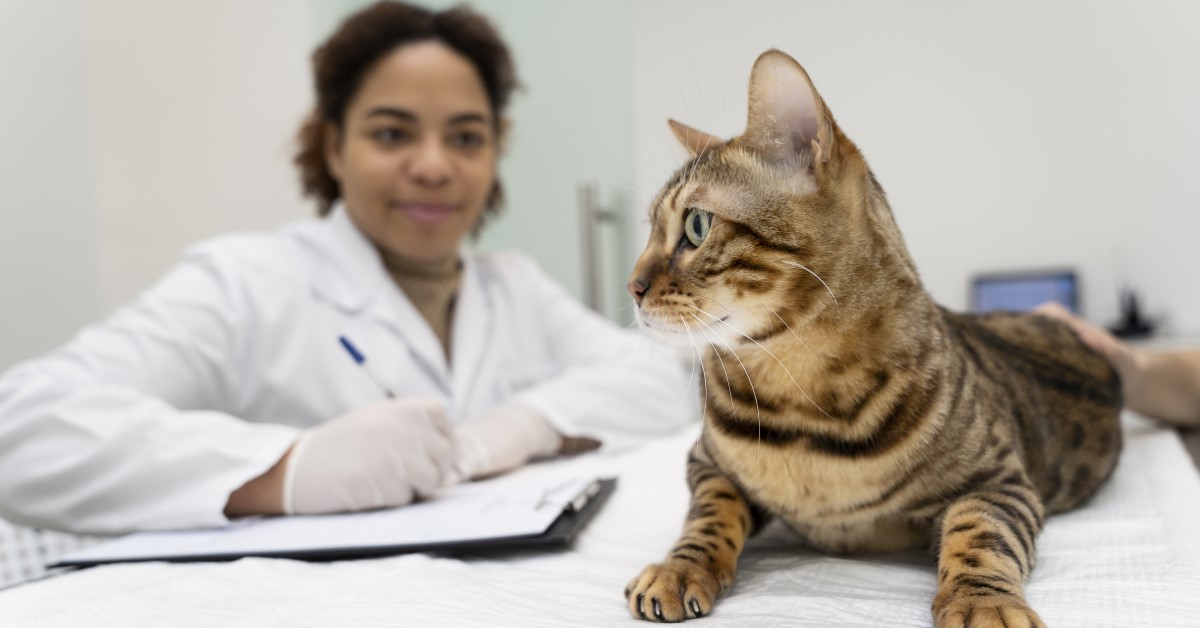Choosing Your Pet's Veterinarian
Your vet is an important partner in caring for your pet. Here are some things to consider when making this decision.

Your veterinarian is an important partner in caring for your pets. Regular visits to the vet for checkups allow both you and your vet to spot any problems before they become serious. Sometimes, small changes that you have not noticed, but are serious, can be very obvious to the vet. By spotting these small changes early, these changes can be eradicated before the problems become too serious to solve.
Just as you would not go to, or continue to visit a doctor you had no confidence in or did not like, it's just as important to select a veterinarian that both you and your pet are absolutely comfortable with. Three key reasons for choosing your veterinarian carefully are:
- Comfort: When you feel comfortable with your veterinarian, you will be more likely to visit more often when there are signs of a problem, rather than take the "wait and see if the condition gets better or symptoms disappear" attitude. This will help prevent health problems from progressing to more serious conditions because they will be detected and treated sooner.
- Communication: When you are comfortable with your veterinarian, the greater the communication and effectiveness of visits and conversations will be between you and your pet's doctor. You will not worry about asking questions or seeking advice for problems with your pet that you are unable to resolve yourself.
- Trust: As with any person, the more you interact with them, the better you get to know them, building up trust and confidence in their abilities and the information they provide you. It is important to visit the same veterinarian for all your pet's needs (unless you are out-of-town and unable to) to build up trust, make communications more effective, and care for your pet most efficiently and completely.
Things to Remember When Choosing Your Veterinarian
Below are some pointers that you can use in selecting your pet's doctor:
- Recommendations from fellow pet owners. Ask a pet-owning friend or neighbor about their veterinarian. You may also want to check with your local pet shop to see which facility they use.
- Location of your veterinarian. Distance from your home to your vet is very important, especially in an emergency. Most family pets tend to get distressed when they have to travel too far and the journey is too long. For obvious reasons, in the case of an emergency, a longer distance is a serious drawback. If you do not drive, make sure the veterinarian you choose is accessible by public transportation.
- Hours of Operation. Try to select a vet that opens his clinic at least one evening per week or on Saturdays if you work during the day. Veterinary hospitals with limited staff and office hours may not fit with your schedule, forcing you to visit another facility.
- Specialist clinic. When choosing a veterinary hospital, it may be more beneficial to choose one that has a particular pet-only clinic, like a dog-only clinic or cat-only clinic. Some veterinary hospitals try to offer too much variety, making the care more generalized and the ability to get an appointment more difficult. Another reason for doing so is to ensure your pet will not be distressed or upset by the presence of other species of pets in the reception area.
- Talk to the staff. If possible, arrange a visit and meet the staff at the veterinary clinic you have chosen, to see firsthand how helpful and friendly they are, and how willing to answer questions. Another thing to take note is their competency level in dealing with pets. One way to find out is to ask them a few basic questions.
- View the facilities. Take a tour if possible, to make sure the clinic is clean, well-organized, and well-managed. If a facility does not allow a tour without offering a valid reason, this may be a signal to look elsewhere. Any veterinary clinic you choose should be viewable at any moment. A facility that must prepare for a tour may not be run efficiently or ethically.
- Services provided. When visiting a facility, check to see exactly what services they provide. Larger centers are more likely to provide more specialist services such as behavior therapy, cardiology, dentistry, dermatology, internal medicine, and neurology than smaller ones.
When taking your pet to the vet, carry your pet in a carrier or escape-proof box with visibility. You must be prepared and able to reply to the vet's questions regarding your pet's general health and problems. If possible, bring along your pet's past medical records or other relevant documentation. Collect any sample that the vet requests in a clean, sealed container.
Do not ask anyone to bring your pet to the vet for you. As the pet owner, you are the only one that knows the most about your pet's symptoms. Unless it's an emergency, please don't call your vet at night or over the weekend, but do contact them as soon as you can when their facility opens during regular hours. Your vet is an expert who should love animals and want to help. Building a three-way relationship is the key to providing the best care for your pet.
Ready to start saving money on pet wellness care?
Then take a look at Mint Wellness, the pet wellness plan that provides fast reimbursement on routine pet care. Save on vaccinations, wellness exams, preventatives, dental, and more!
Learn More


